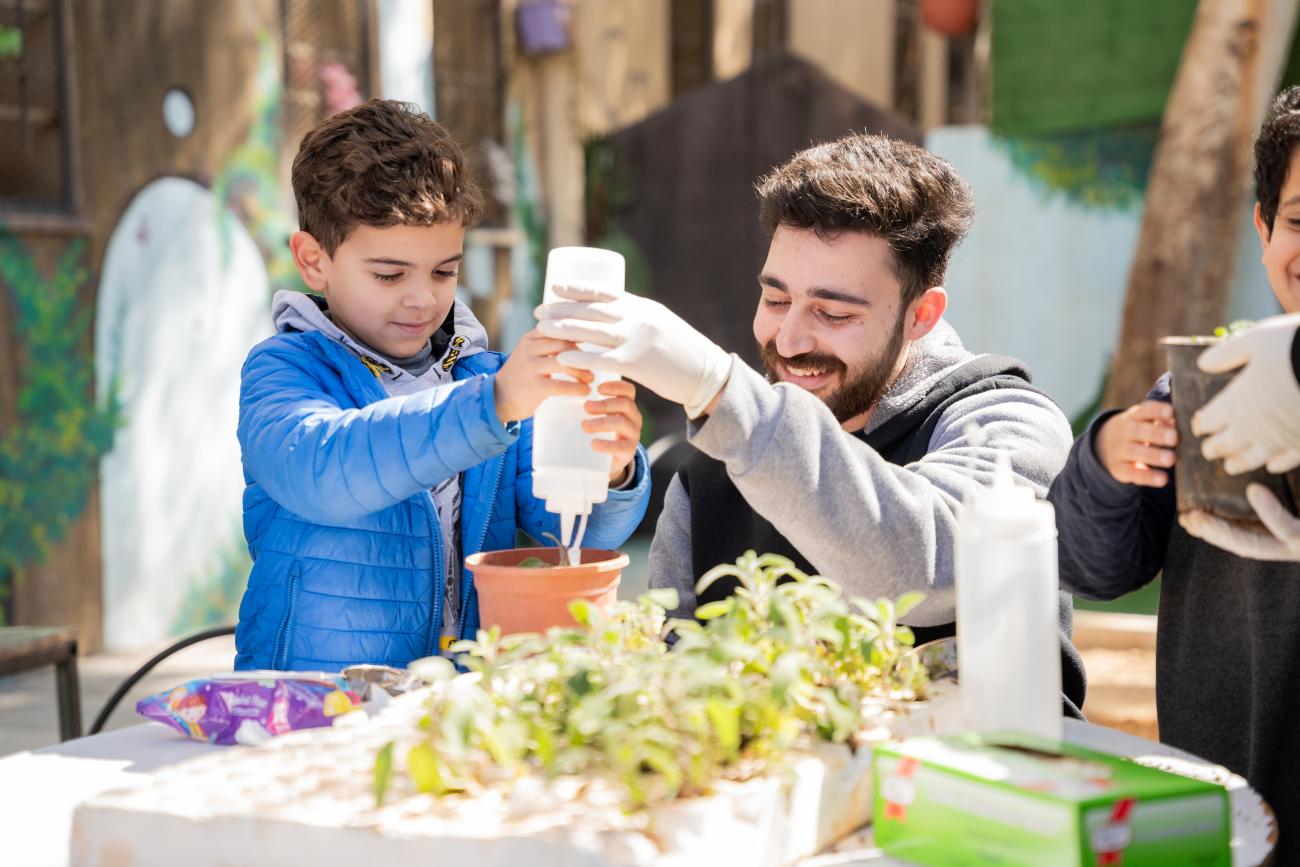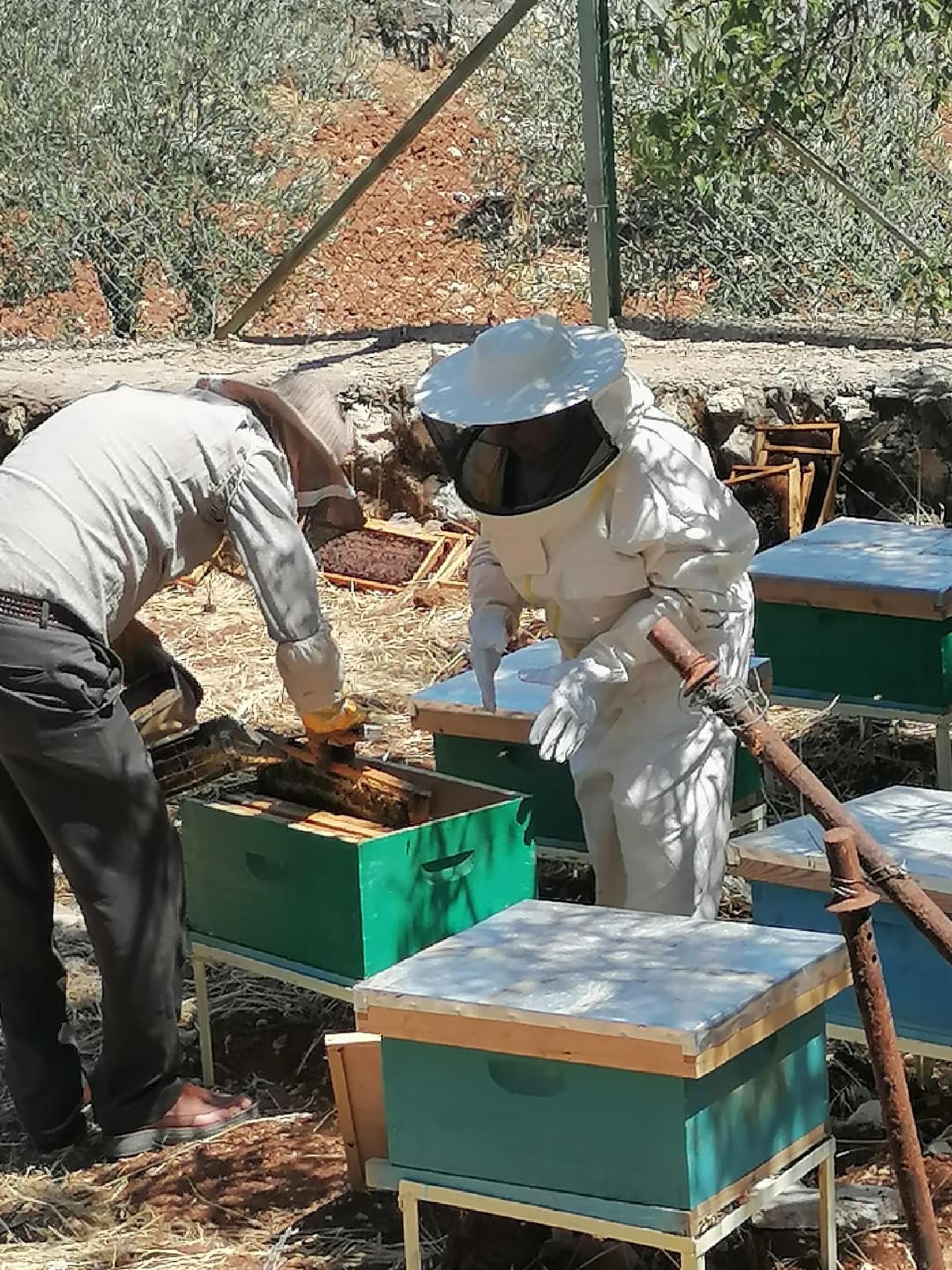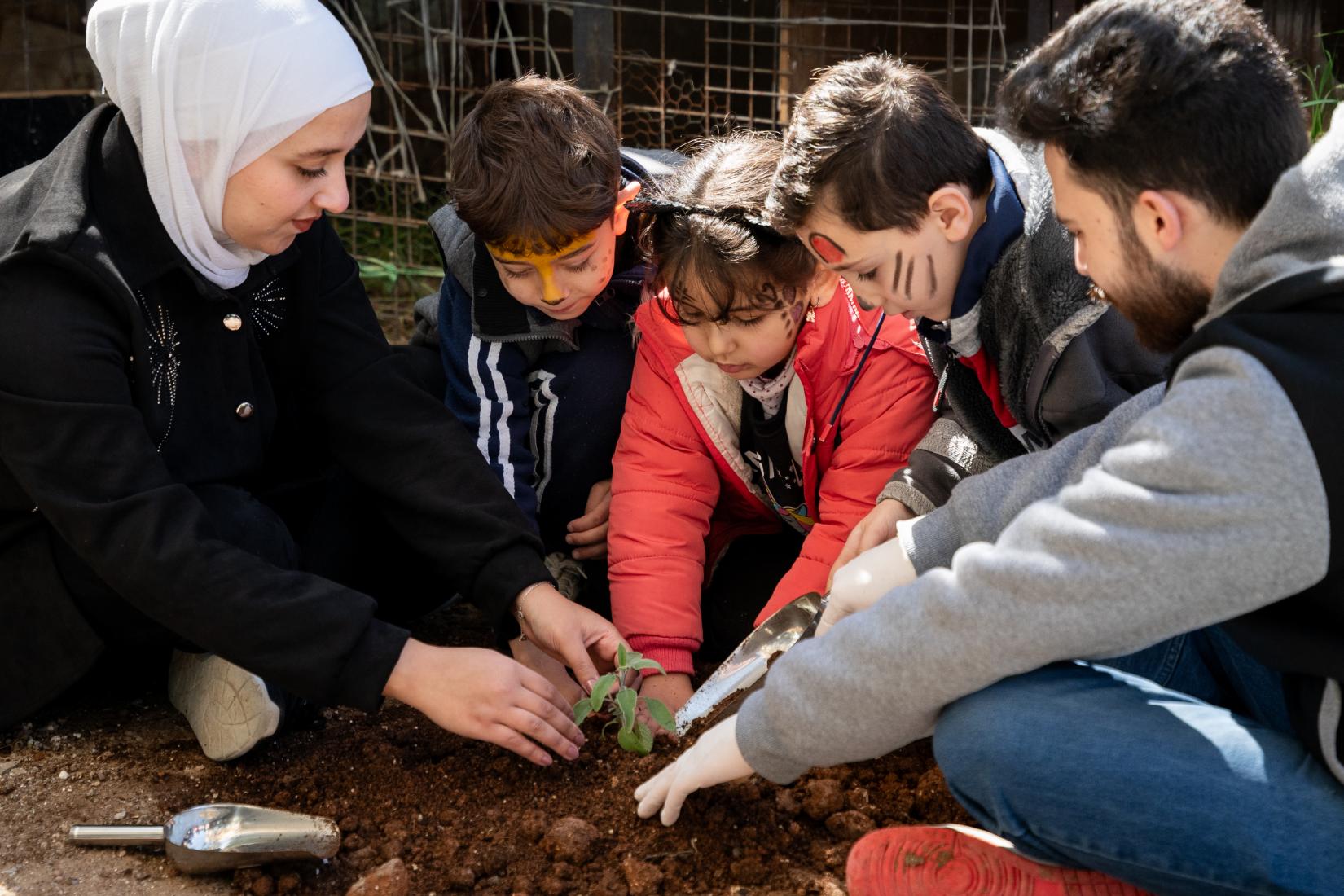Community-led Climate Actions to Boost Resilience in Jordan

Communities, young leaders and women are using the power of climate action to lead the way for a greener, more equitable and resilient Jordan.
Across Jordan, a quiet yet powerful transformation is underway. Communities, young leaders and women are using the power of climate action to lead the way for a greener, more equitable and resilient Jordan. From schoolyards to rooftops, communities across the country are restoring ecosystems, creating jobs and cultivating hope for the future.
The UN in Jordan team is working closely with the Government and international partners to support these locally led efforts, demonstrating what inclusive climate action looks like in practice: community-focused, driven by innovation, and sustained by cooperation and collaboration.
As Jordan faces an increasing number of environmental challenges, including rising temperatures, water scarcity, land degradation and biodiversity loss, these initiatives chart a path toward a greener transformation and show that climate resilience is not a distant goal but a collective journey, powered by shared purpose.
Under the leadership of the UN Resident Coordinator and in line with its 2023-2027 strategic priorities, the UN in Jordan team mobilises technical expertise to support national initiatives to tackle these issues, promoting climate adaptation and building resilience at several levels.
Beekeeping for climate resilience and livelihood
In the forested hills of Jerash and Ajloun Governorates, wildfires and droughts increasingly undermine biodiversity and agriculture. One local resident, Afaf Nizami, leverages beekeeping to reverse the trend while providing opportunities for members of her community, particularly women, to boost their livelihoods.

As the Chairwoman of the Al-Nashmiyya Charitable Society for Women and Child Development, Afaf has long worked to support vulnerable women and children in her community. But with the increasing frequency of wildfires, unpredictable rainfall, and extended dry spells, Afaf saw the need for a new kind of empowerment, one rooted in resilience, sustainability and nature-based solutions.
Her community-based organization was selected as one of six beneficiaries of a joint initiative led by the Food and Agriculture Organization (FAO) and the Government of Japan. The initiative integrates disaster risk reduction with sustainable livelihood development in Jerash and Ajloun.
Through this programme, Afaf and her colleagues received training on fire prevention, flood response, drought mitigation and beekeeping. In addition to the knowledge that Afaf acquired, she also received 90 inhabited beehives, six modern honey extractor machines, stainless steel tanks, harvesting gear and marketing tools. This equipment was everything she needed to turn the training she received into an income stream to boost her livelihood.
“This isn’t just about producing honey. This is about securing a future for women-led associations, generating income and building food security in our communities. With the right tools, we are now able to launch real, sustainable products,” said Afaf.
For her, beekeeping has become a symbol of what is possible when the right strategic and infrastructure support complements technical training and local know-how. Her association is now developing a community apiary, where women can learn, work and earn an income together, reclaiming economic agency while contributing to environmental restoration.
The impact goes beyond Afaf’s association. Expanding on this initiative and in partnership with national authorities, two governorate-level Disaster Risk Reduction (DRR) committees were established in Jerash and Ajloun. These committees are helping integrate grassroots resilience into broader regional planning. Further, these activities revitalised efforts to strengthen ecosystem rehabilitation and sustainable land use while placing communities at the centre of climate adaptation efforts.
Bringing climate action to the classroom
In the industrial city of Zarqa, two 23-year-olds—Mahdi and Ruba—are taking climate action in their community where it matters most: in classrooms with the next generation.
As Youth Climate Leaders under the UN Children’s Fund (UNICEF)’s Sawn programme, the duo co-created Climate Friends, a grassroots environmental initiative aimed at educating schoolchildren about climate change through interactive games, storytelling and creative learning tools.

“We targeted this age group because children are the future,” explains Ruba. “Whatever they learn at an early age stays with them, and we wanted those lessons to be about care for the Earth.”
This engagement brought sustainability into classrooms in a playful and engaging way. Children learned about recycling by building toys from plastic cups. They explored concepts of biodiversity through planting seeds and water conservation by simulating rainfall in miniature ecosystems. Mahdi and Ruba aimed to send a simple yet powerful message that resonates with young students: “If we take care of the environment, the environment will take care of us.”
For Mahdi, the work was deeply personal.
“In Zarqa, the air quality is only getting worse. You see trash everywhere. But being part of this initiative gave me something more than frustration—it gave me hope,” he says. “Hope that youth, when united, can raise awareness, take action, and actually change things.”
The Sawn programme, a partnership between the Jordanian Ministry of Youth, the Ministry of Environment and UNICEF, and which was implemented by the non-profit Generations for Peace, has engaged with youth climate leaders like Mahdi and Ruba. This initiative aims to cultivate their leadership with the right training and provide them with opportunities to participate in national and global fora on climate change. With generous support from the Kingdom of the Netherlands through the PROSPECTS partnership, these young leaders are rolling out climate advocacy initiatives across Jordan’s 12 governorates, creating a ripple effect of awareness, responsibility and change.
“The children understood more than we expected,” Ruba reflects. “ They reminded us that a cleaner Jordan is possible if we start early, and we start together.”
Smart innovation for water security
In Irbid and Mafraq, where water is both life and limitation, young Jordanian innovators forge new paths toward climate resilience, bringing prototypes.
Under the “Scaling Up Water Innovation for Climate Security” initiative, supported by the UN Development Programme (UNDP) and funded by the Swedish International Development Agency (Sida) through the SDG-Climate Facility, a group of visionary young entrepreneurs is proving that water scarcity can be met with ingenuity, not despair.
Seven youth-led Small and Medium Enterprises (SMEs) are at the heart of this transformation. They are deploying a mix of AI-powered irrigation systems, Internet of Things (IoT) devices, hydroponic solutions, vertical gardens and green wall technologies—each tailored to Jordan’s harsh climate and fragile ecosystems.
One youth founder proudly shared, “Our startup reduced water use by 20 per cent while increasing crop yield. This isn’t just about agriculture. It’s about innovation, survival and responsibility.”
But the project’s reach extends far beyond these seven companies. More than 25 startups in the sustainability space were trained in financial modelling, value proposition design, and customer development. Most beneficiaries, 63 per cent, were young people under 30, making this initiative a powerful model of youth-centred, impact-driven entrepreneurship.
From Irbid’s university halls to Mafraq’s farmlands, these innovations are already bearing fruit.
For example, two start-ups, Smart Green and SmartWay to Innovation, are revolutionising household farming by using data to optimise water use. Other startups, Senara, Green On, and iPlant, introduced urban farming models that are redefining food production in water-scarce neighborhoods. Al-Yaqout for Agricultural Investments and KeyLife Electronics developed soil enhancement and water retention products, helping farmers grow more with less resources.
Guided by the Youth 2030 strategy, the initiative also ensured long-term sustainability by training beneficiaries in system maintenance and transferring technical knowledge and ownership to the communities.
Jordan’s community-led leadership is demonstrating the critical role of local action in building climate resilience. With the support of the UN in Jordan, these innovative approaches make the case that putting the community, including women and young people, in the driver’s seat of sustainable development paves the way for a prosperous, sustainable future.










